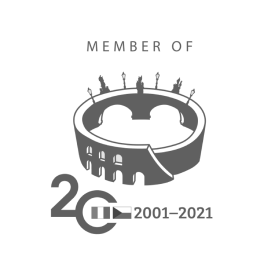
The role of escrow in real estate transactions and the options available in the Czech Republic
Imagine yourself in the middle of a significant financial decision—acquiring or selling a property in the Czech Republic. Amidst the enthusiasm and administrative procedures, an often underestimated yet crucial element comes into play: the escrow of funds.
If you are buying or selling property in the Czech Republic, you will probably come across the term “escrow of funds” (úschova peněz) or “escrow of the purchase price” (úschova kupní ceny). This ostensibly routine step serves as the linchpin for the security of both parties during the delicate interim between executing the purchase agreement and the formal registration of the new proprietor. Given the array of available options, the question arises: how does one judiciously select the most suitable option?
Escrow: What is it?
Escrow constitutes a legal concept delineating a financial arrangement in which a third party holds an asset or funds on behalf of two parties engaged in a transaction. The administration of escrow accounts rests with the designated escrow agent, who disburses the assets or funds solely upon the satisfactory fulfillment of pre-established contractual obligations or upon receiving explicit instructions as stipulated in the agreement.
This is a financial process used when two parties take part in a transaction and the fulfillment of their obligations is uncertain.
Escrow in Real Estate
Escrow accounts have various applications in real estate transactions. When funds are deposited into escrow with a third party, it allows the buyer to provide a good faith deposit and conduct due diligence in the consideration of a potential property acquisition. Moreover, escrow accounts offer reassurance to the seller, indicating the buyer’s genuine commitment to the purchase.
In real estate transactions, the versatility of an escrow account is evident, particularly in scenarios like the sale of a house. In cases with conditions such as a required inspection, both the buyer and seller might choose an escrow arrangement. In this setup, the buyer places the payment for the house into an escrow account held by a third party, enabling the seller to proceed with house inspections while ensuring the security of funds and the buyer’s financial capability. Upon the fulfillment of all conditions, the funds in escrow are then transferred to the seller.
Additionally, escrow plays a significant role during mortgage closing, where an account is established to cover future homeowners insurance and property tax payments. A portion of the monthly mortgage payment is directed to the escrow account for these expenses. While borrowers with an escrow account may experience higher monthly payments, they are relieved from the responsibility of managing annual premiums or property tax bills, as these are systematically covered through their monthly escrow contributions.
Securing transactions: The importance of escrow in property deals
The escrow system functions as a protective measure throughout the transaction process. On the one hand, it provides buyers with an assurance that their funds remain secure until their ownership rights are officially registered, shielding them from potential fraudulent activities. On the other hand, sellers gain confidence in the guarantee of receiving payment once the ownership transfer concludes, safeguarding their interests in case the buyer fails to furnish the required funds.
Escrows play a crucial role in the Czech Republic due to an approximate 30-day gap between signing the purchase agreement and completing the registration of the new owner in the land registry. During this interval, it is essential for both parties to have protection in place.
Escrow options in the Czech Republic: Pros and cons
Typically, when engaging in property transactions in the Czech Republic, individuals have the option of selecting from three primary types of escrow for funds, namely:
- Bank escrow
- Lawyer’s escrow
- Notary’s escrow
Additionally, a distinct fourth category exists, known as real estate escrow, wherein funds are directly held by the real estate agency. Each variant of property escrow comes with its specific set of advantages and disadvantages when involved in a property sale and when choosing among these alternatives, you should be guided by several criteria including money security, safekeeping insurance, references, and good name, but also the price for safekeeping.
Bank’s escrow
The utilization of a Bank escrow presents distinct advantages, notably a close-to-zero risk of financial loss arising from fraud or embezzlement. Furthermore, Czech banks operate under substantial coverage, extensive insurance, and stringent regulation by state institutions, which represent an additional guarantee to the parties.
At the same time, however, it is generally more costly than other alternatives, like those offered by law firms, and negotiating terms in the escrow contract may be limited, as banks typically adhere to standardized contract templates and may only consider minor adjustments.
Lawyer’s escrow
This type of escrow is widely favored in the Czech Republic, and one of the factors contributing to its popularity is its relatively lower cost compared to bank or notary escrows. Its practicality stems from the ability of the lawyer responsible for drafting the purchase agreement to bundle it with the escrow agreement. Consequently, communication about the property transfer can be streamlined through a single knowledgeable individual overseeing the entire case. Additionally, lawyers have greater flexibility to incorporate numerous revisions into the escrow agreement compared to banks or notaries.
Regrettably, the short post-revolutionary history of the real estate market has several cases of embezzlement, an example of which is the case of attorney Miloš Vlasák who disappeared with 50 million crowns he had in custody from dozens of clients of the Prague company Century Reality 21. Therefore, it is crucial to carefully consider the selection of the lawyer entrusted with the property’s purchase price. Lawyers must adhere to specific rules established by the Czech Bar Association, including the requirement to maintain a separate account dedicated to escrow purposes and reporting each escrow transaction to the bar association. Although Czech lawyers are mandated to have insurance coverage of at least 5 million Czech Crowns, this may prove insufficient given current property prices, and the insurance does not cover property loss or potential misappropriation. Hence, meticulous attention to the choice of the law firm handling the funds is paramount.
Notary’s escrow
Employing notary services for the escrow of funds follows a comparable principle to engaging a lawyer. Notaries in the Czech Republic are also subject to legal insurance, although it is important to note that insurance coverage has its limitations. The cost associated with notary escrow is usually the highest among the various options as it is dictated by the fixed notarial tariff, a regulation outlined in the current Decree No. 73/2001 Coll.
Just like the process of selecting a reliable lawyer, it is advisable to choose a trustworthy notary for handling your escrow of funds to ensure the security of your money. Contrary to a common misconception, a notary, despite being a state employee in the Czech Republic, is not a guaranteed entity. In the event of escrow misappropriation, the state is not held responsible for the lost funds, mirroring the scenario with other forms of escrow.
Escrow through a real estate agency
According to the new law on real estate mediation, which applies from March 2020, a real estate agency can also provide escrow of the purchase price facilitating such services if clients expressly request it in writing and thanks to this law, this kind of escrow finally has its own fixed rules: clients’ money must be kept in an account strictly separate from the operational account. In particular, the real estate designates the bank as the owner of the depositor’s money, and the provision of escrow is reported by the real estate agency to the Ministry.
When considering the security of the escrow, we can state that escrow with a real estate agency can be much safer when it comes to a reputable company than escrow with a single individual. The payment of the purchase price does not depend on one private person but goes through a multi-stage control. However, the careful selection of a real estate agency is very important.
A big advantage is the low price of escrow with a real estate agency. Many real estate agencies often provide escrow services at no extra charge, incorporating it into other services related to property sales. Nevertheless, it is generally advisable to opt for one of the other alternatives for escrow of funds as, while escrow procedures are in place, the official oversight of Czech real estate agencies is limited compared to the supervision exercised over lawyers, notaries, or banks. This renders escrow through a real estate agency more susceptible to risks.
Sources: https://bnnbreaking.com/, https://praguemorning.cz/, https://www.investopedia.com/




